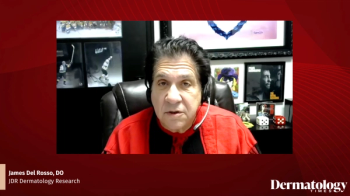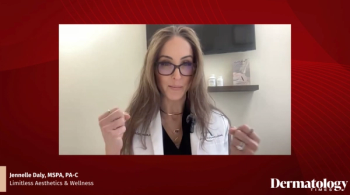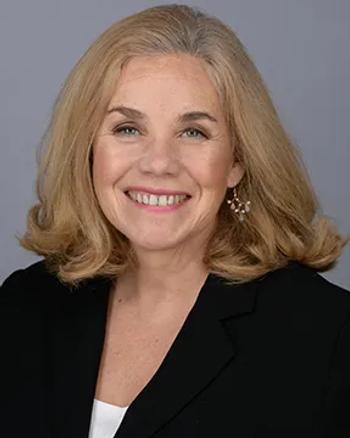
- Dermatology Times, August 2023 (Vol. 44. No. 08)
- Volume 44
- Issue 08
5 Money Mistakes Dermatologists Make and How to Avoid Them
David Mandell, JD, MBA, is here to help ensure new and novice clinicians understand the impact of taxes, lifestyle creep, investment plans, and more.
There are numerous ways any physician can lose money, fall behind on financial goals, or make wealth management mistakes. These can range from trusting the wrong advisers with their assets, being too risky with investments, or even trying to do too much without professional help (ie, writing your own will). In this article, we will focus on common mistakes made around budgeting and saving—the very basics of financial planning.
Mistake No. 1: Ignoring the Effect of Taxes on Take-Home Pay
Understanding your true after-tax take-home pay is fundamental to the all-important step of budgeting one’s finances. For many dermatologists in high-tax states, their marginal tax rate (the highest rate they will pay on their last dollars earned for the year) may approach 50%. This has a significant impact on all other saving, spending, and budgeting concerns. To avoid this mistake, be diligent about your financial planning and be sure to use after-tax income amounts in your modeling, done either on your own with tools like Microsoft Excel or, even better, in professional financial modeling software used by professional advisers in the field.
Mistake No. 2: Succumbing Too Much to “Lifestyle Creep”
“Lifestyle creep” refers to the phenomenon in which discretionary consumption increases on nonessential items as the standard of living improves. Nowhere is this more apparent than during the short interval of time when a young physician jumps from residency or fellowship into the attending life. There is a natural tendency to suddenly spend more than necessary on things such as lavish cars and houses, high-end dining, and luxury travel. With lifestyle creep, it is common for discretionary spending habits to be unconsciously linked to the spending habits of peers. In some cases, luxury items that were once perceived as a choice become viewed as a right or a necessity.
Although spending your hard-earned dollars on life’s finer things is truly a right, it is best to do so within your means in order to safeguard your financial future and harness the magical power of compound interest with your investing. Once you know your after-tax monthly cash flow, a budget can be developed quite easily to keep you on track.
As a general rule to avoid this mistake, try to keep fixed expenses below 50% of your monthly cash flow. By the same token, variable expenses should not top 25% of the monthly cash flow. The goal each month should be to save 25% or more of your after-tax take-home pay to adequately achieve your financial goals and prepare for unexpected events.
Mistake No. 3: Not Investing at Least 25% of Take-Home Pay
Albert Einstein said, “Compound interest is the eighth wonder of the world. He who understands it, earns it…he who doesn’t…pays it.” Despite having familiarity with the power of compounding from medical school microbiology and student loan debt, it is amazing that many physicians and surgeons fail toutilize this incredible force for supercharging their own wealth. Most physicians simply do not understand that the wealth generated by prudent, regular contributions to diversified and risk-optimized investment vehicles compounding over time will always dwarf even the most miserly of money-saving habits.
Quite often, the lack of investing mistake is made by dermatologists not because they fail to understand the power of compounding, but because they simply do not have funds to invest. This leads us back to mistake No. 2, which can often be the root of the problem.
Mistake No. 4: Falsely Believing Income Will Remain High Forever
It is not uncommon for many dermatologists to falsely believe that they will earn tens of thousands of dollars every month for the rest of their lives. For better or for worse, the COVID-19 pandemic and its associated economic downturn gave many physicians of all specialties their first taste of a drastic drop in income, a scary but real possibility. Although many occupationally disruptive events such as disability claims can be insured against, many financially disruptive events such as COVID-19, medical staff complaints, or medical board suspensions are not insurable and can occur unexpectedly with harsh outcomes. Realizing this fact, the importance of disability insurance, and creating a nest egg to sustain the finances if income dissipates are important success factors to avoid this mistake.
Mistake No. 5: Not Realizing How Much Needs to Be Saved for Retirement
Anyone who has lost a job or been without income for several months knows how fast a checking account gets depleted when credit card bills, mortgages, and everyday living expenses continue to mount. This drawdown of wealth only accelerates as one enters retirement because of the permanent lack of occupational income, especially if passive income streams are unavailable.
Many physicians do not realize that to retire comfortably and successfully in their 60s or 70s, a multimillion-dollar nest egg is required to sustain their same lifestyle and spending habits well into their retirement years. Further, when one considers the impact of inflation over the long term, it soon becomes clear that even a multimillion-dollar retirement account may not go as far as one might initially think. Modeling out retirement needs well in advance, with inflation as a factor, is fundamental to getting on track for retirement.
Conclusion
These 5 financial mistakes are all too common among dermatologists, impacting those at all stages of a career. Fortunately, as we have noted, each of them can be avoided with simple (not easy) planning techniques. Although they can be implemented without any professional help, many physicians find the use of an experienced financial adviser helpful in these areas.
David B. Mandell, JD, MBA, is an attorney and author of more than a dozen books for doctors, including Wealth Planning for the Modern Physician. He is a partner in the wealth management firm OJM Group (
Disclosure
OJM Group, LLC (“OJM”) is a US Securities and Exchange Commission (SEC)–registered investment adviser with its principal place of practice in the state of Ohio. SEC registration does not constitute an endorsement of OJM by the SEC nor does it indicate that OJM has attained a particular level of skill or ability. OJM and its representatives are in compliance with the current notice filing and registration requirements imposed upon registered investment advisers by those states in which OJM maintains clients. OJM may only transact practice in those states in which it is registered or qualifies for an exemption or exclusion from registration requirements. For information pertaining to the registration status of OJM, please contact OJM or refer to the Investment Adviser Public Disclosure website
For additional information about OJM, including fees and services, send for our disclosure brochure as set forth on Form ADV using the contact information herein. Please read the disclosure statement carefully before you invest or send money.
This article contains general information that is not suitable for everyone. The information containedherein should not be construed as personalized legal or tax advice or as a recommendation of any particular security or strategy. There is no guarantee that the views and opinions expressed in this article will be appropriate for your particular circumstances. Tax law changes frequently; accordingly, information presented herein is subject to change without notice. You should seek professional tax and legal advice before implementing any strategy discussed herein.
Articles in this issue
over 2 years ago
Discovering Dermatology Times: August 2023over 2 years ago
Considering Plaque Psoriasis Comorbidities in Treatment Plansover 2 years ago
Top 4 Clinical Pearls for the Management of Plaque Psoriasisover 2 years ago
The ABCs of CBD: Cannabinoids in Dermatology and Skin Careover 2 years ago
Disclosing Physician Health: What Is Required?over 2 years ago
Psoriasis Updates: Year Thus FarNewsletter
Like what you’re reading? Subscribe to Dermatology Times for weekly updates on therapies, innovations, and real-world practice tips.










